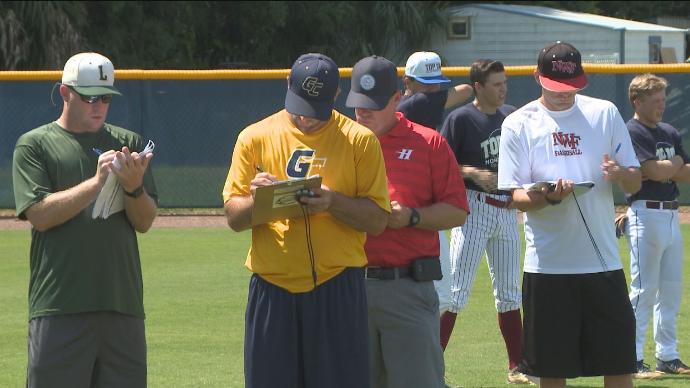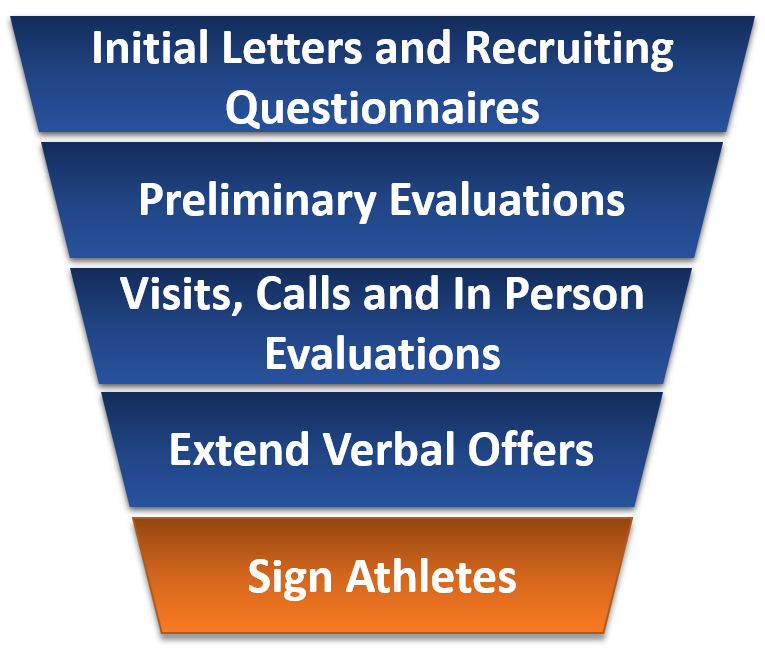Let’s face it, getting recruited is a lot harder than it seems on the surface. The truth is, there are 100’s to 1000’s of really good, qualified recruits for just about any high-level position for a student-athlete.
Whether you are looking to get recruited by a college coach, youth sports coach or a prep school selection committee, standing out and being noticed as “different” from the rest is a real challenge.

Here are 3 Keys to Success in the Recruiting Process:
- Make it easy on the coach/scout/committee
- Build a relationship over time
- Focus on great communication
Tip #1 – Make it easy
What does this mean? Let’s think about the real schedule and “to-do list” of the average college coach, top-tier youth team coach, scout or selection committee member…. they are all BUSY people. Very busy! Coaches don’t have time to go hunting for information on you or anyone else.
You can either make it easy on the coach to find you, get info on you and do a quick scouting report on you, or not. If you don’t make it easy on the coach be prepared to be passed over by those student-athletes that do make it easy.
How can you make it easy on the coach or scout? Create a FREE profile here at Elite Junior Profiles and complete your profile with as much relevant info about you as possible!
With a complete profile rich with information about you including links to any other profiles you might have, highlight videos, social media links, academic info and more, you can make it incredibly easy on a prospective coach or scout by simply sending them a link to your Elite Junior Profile!
Tip #2 – Build relationships over time
Don’t try to accomplish everything in the first email you send to a coach. Honestly, too many people send long emails that no coach will have time to review coming from a person they have never met. Take it easy, go slow and focus on building a relationship with the coach and his/her program.
Show interest, ask questions and provide concise info. If you have a full profile completed on your EJP profile, you will make it easy on yourself and the coach by just including a link to your profile that the coach can click on to find out more info on you. If you try to put all that information in an email, the coach will never read it.
When it comes to building a relationship with a coach, the best rule of thumb is to put yourself in the position of the coach and ask yourself, “what would I want to receive from a prospective player if I were the coach?”
This will be a great question to ask yourself with each new email or communication you draft for a coach or scout you are building a relationship with!
Tip #3 – Focus on Great Communication
So many choices we make on relationships and in life are based on how we perceived the choices afforded to us around the decision. The perceptions we come to as humans are derived from the communications we have had about the situation or scenario.
Communication we have with others can be bad, good or great – generally speaking. If you focus on being a great communicator, you will most certainly differentiate yourself from your peers who are competing for the same spots.
What are some “great” communication strategies?
- Keep communications personal, don’t generalize. We don’t listen to generalized communications. When people are personal with communicating with us we perceive it differently. Don’t send mass emails to 20 coaches all at the same time. Send them one by one.
- Know who you are communicating with… in other words, do a little research on who you are communicating with. If you can find out more about them from a biography on them, a LinkedIn profile or somewhere else, you can then “personalize” your communications even more!
- Be respectful, always. Too many young people don’t consider how their communications (email, texts, talking) are perceived. It doesn’t matter what you mean, what matters is how are you perceived. Put focus on being respectful of the coach’s time. Saying things like “yes sir” and “no ma’am” are great verbal cues to a coach that you are someone who is respectful of others, especially those who are older and more experienced.














